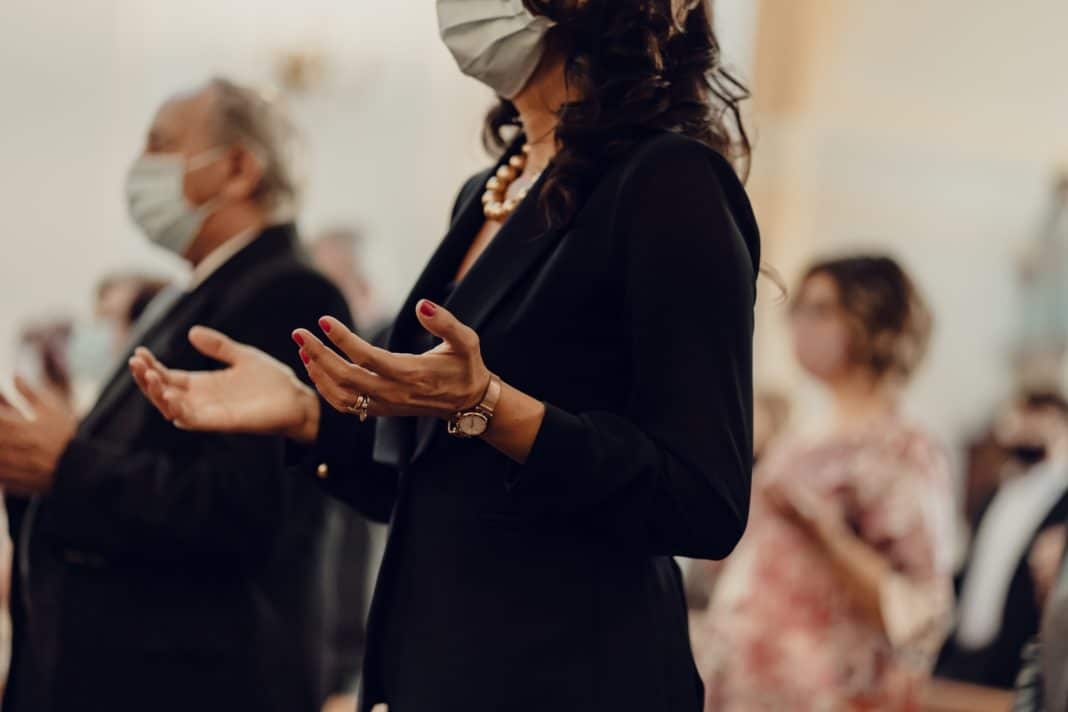Being Transformed By the Living Word
by Annie Duncan
1. What has been the greatest challenge for you as a minister during this crisis?
I’m a bit embarrassed to say that our greatest challenge was actually with us pre-pandemic. Our greatest challenge was how to get people to go deeper and grow in their faith (discipleship). Figuring out discipleship for the over-scheduled has been something we couldn’t figure out. Until COVID. Early on in the pandemic, we saw so many people turning to our online services. People were engaged in worship. But our leadership knew that while the “gather” (whether online or in-person) is an important part of our faith journey, it does not end there. We gather to be sent. So, one of the silver linings that COVID has been is that we have been forced to “go” and be in our homes and in our communities.
The challenge that this gave us was to provide for people spaces to grow in their faith, outside of a Sunday worship service. BelPres, pre-pandemic, had not figured out how to best do this. We didn’t have a clear “next step” for people. But during COVID, we started “All In” Zoom Groups. The groups meet online and dig deeper into a passage of scripture together by going over three questions: 1) What does this teach me about God?; 2) What does it teach me about people?; and 3) How do I live differently because of it?
Our congregation has a lot of computer programmers and engineers, e.g., from Microsoft, Amazon, Boeing, etc. So, gathering more information is a comfortable zone for many of our members (e.g., What is the Greek root of this word in the Book of John?). The growing edge for us has been relational––getting to know God and each other in a more vulnerable way. Our challenge remains being transformed by the living Word of God, Jesus Christ.
2. What do you think you and your congregation may have learned through this crisis?
The biggest thing we have learned is that the church is not a building, but a people. I know we knew that before, but it has become crystal clear the longer we are in this pandemic. Pre-pandemic, there was a toxic belief that ministry only counted if it was “onsite” at the church building. But COVID has forced all the ministry and discipleship that we are doing out and outside of the church building––into homes, into coffee shops, into parks, etc. I don’t see us changing this model post-pandemic. Our people being out in the community––where there are opportunities to evangelize––seems more in line with the Gospel than our people fighting over room reservations in the church.
3. What do you see as the greatest challenge facing your congregation in the future?
One thing leadership has been pressing into lately is that God is making us one. For a long time, we have been a church that has had multiple Sunday worship services––and done them with excellence: a Sanctuary service (traditional worship), a Modern service (contemporary worship) and an African service. “All of us, together” is a phrase we keep hearing from the Holy Spirit. COVID has brought all of us together. And as we begin to regather and reopen, do we stay in our separate lanes of worship? Or is God doing something new? Is he bringing his people together? That is going to be hard, for a 65-year-old church with some major preset traditions. But there is something beautiful about being together. Setting preferences aside and being together for the sake of the prayer that Jesus prayed so many years ago (John 17). And in a time when our nation is politically divided more than ever (and that extends to our church as well!), maybe being together is exactly what God wants to get done with his people and church.
4. What good do you think might come from this crisis?
We are busy and maxed out. Early on, when COVID canceled what seemed like everything, it has given us a chance to truly assess what we add back in––what we add back into what we offer at church, but also what we add back into our schedules. The silver lining is that it gives us a blank slate––and one should never waste a blank slate moment.
5. What have been the best sources of encouragement for you during this crisis?
The biggest encouragement has been that our people are continually engaged. Through worship services to serving our community to raising over $1.5M for COVID relief in our community, we are seeing the best of our people right now. There have been fewer and fewer “angry emails” about things that don’t really matter (e.g. the coffee wasn’t hot enough, my announcement was not in the bulletin, etc.), and more engagement surrounding things that do matter (e.g. asking to understand more about God’s heart for justice and racial reconciliation and what our church can do, responding to the ways COVID has impacted our community, etc.).
Annie Duncan, M.Div., is Executive Pastor of Bellevue Presbyterian Church (PCUSA), Bellevue, Washington
